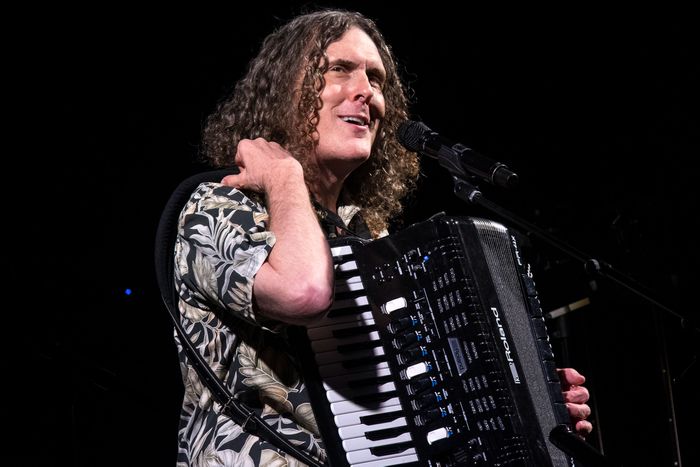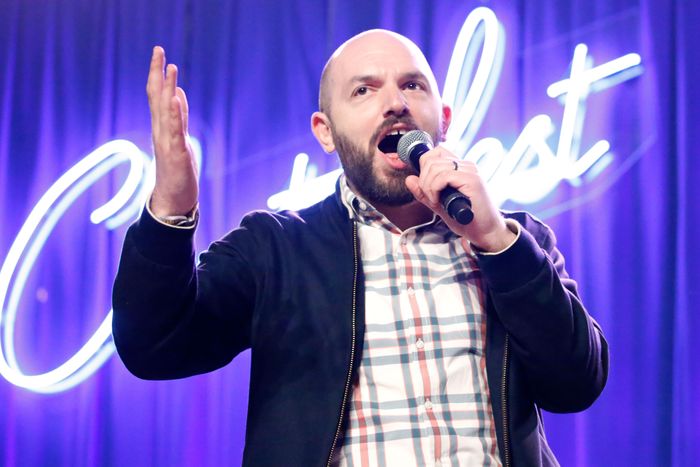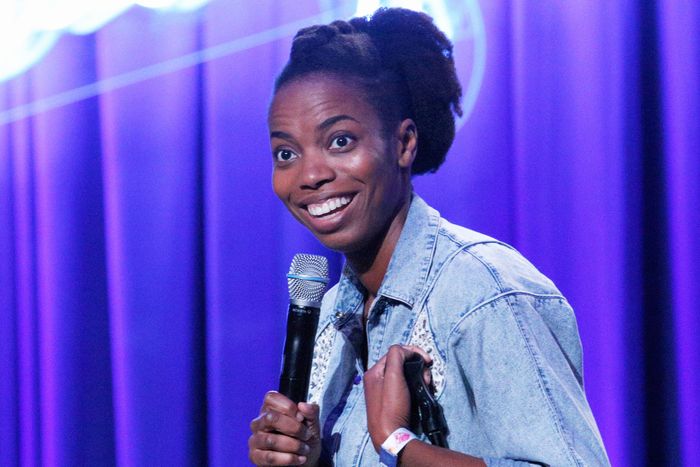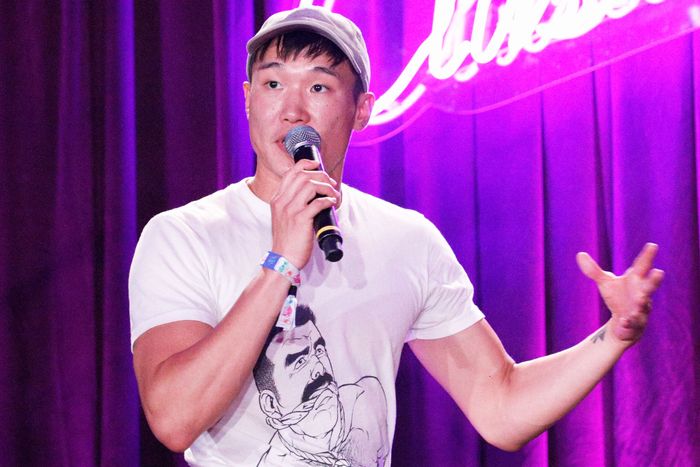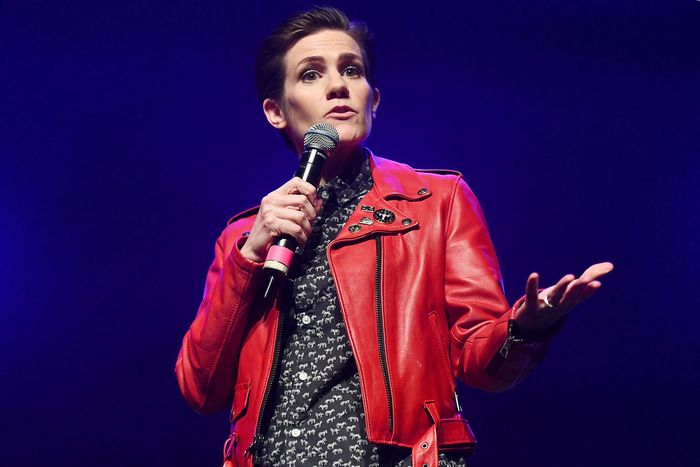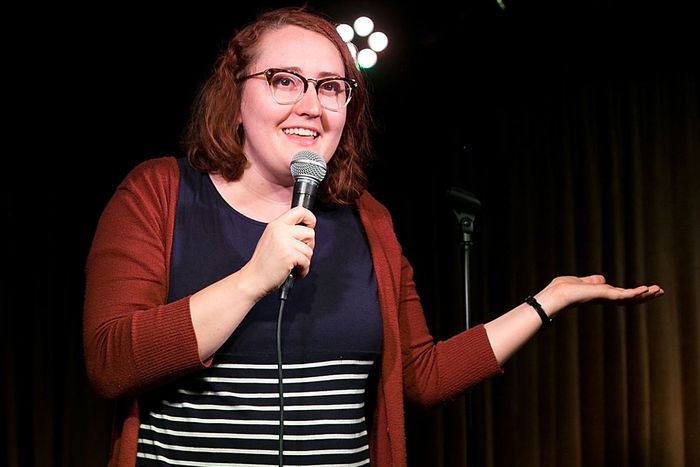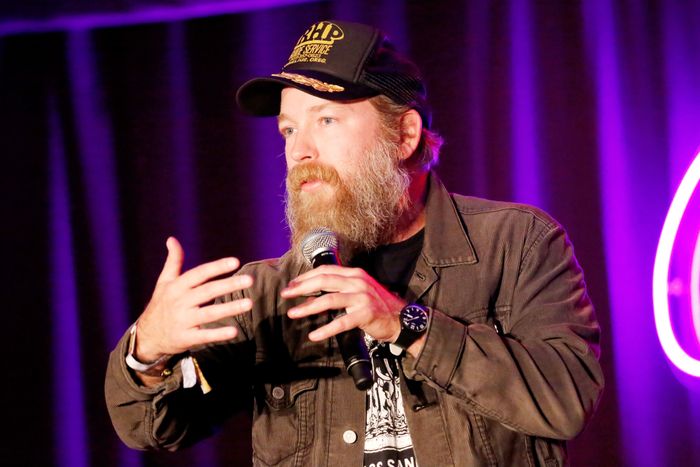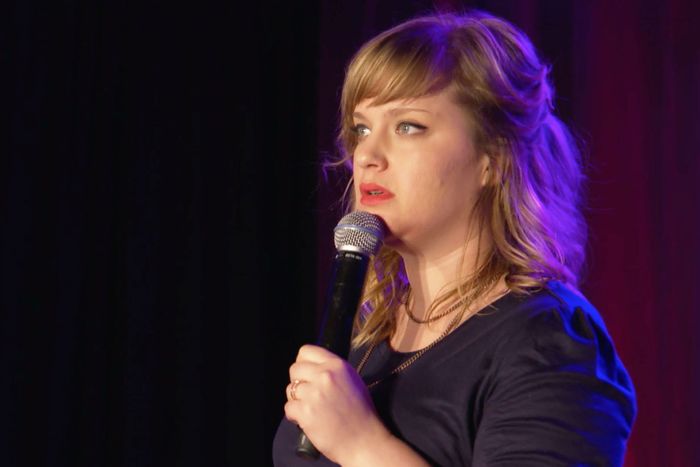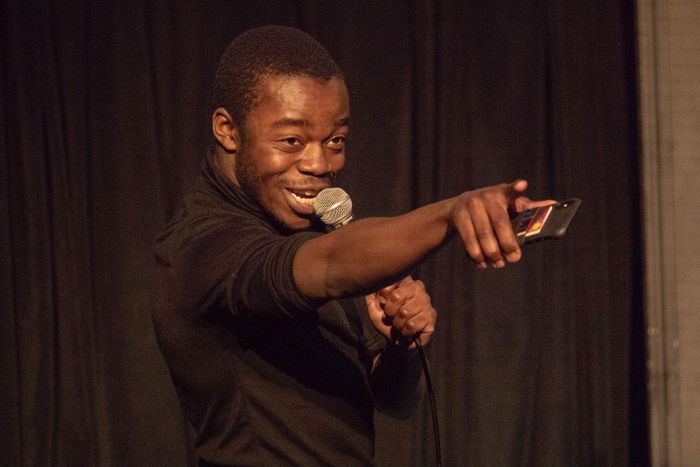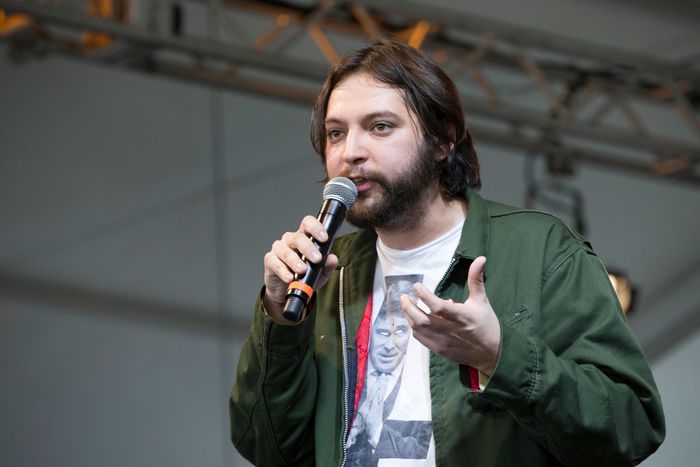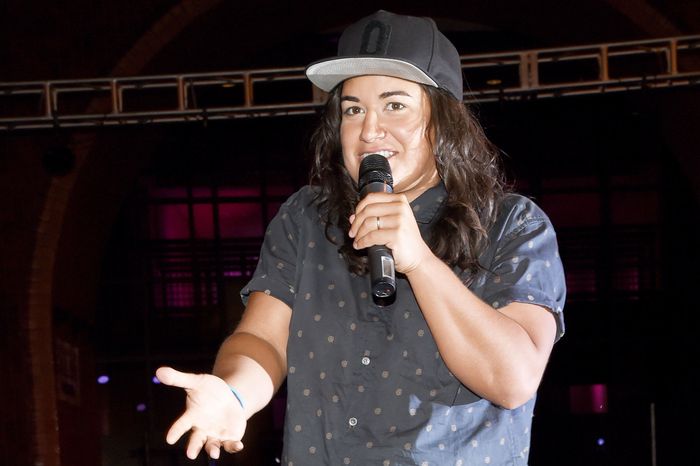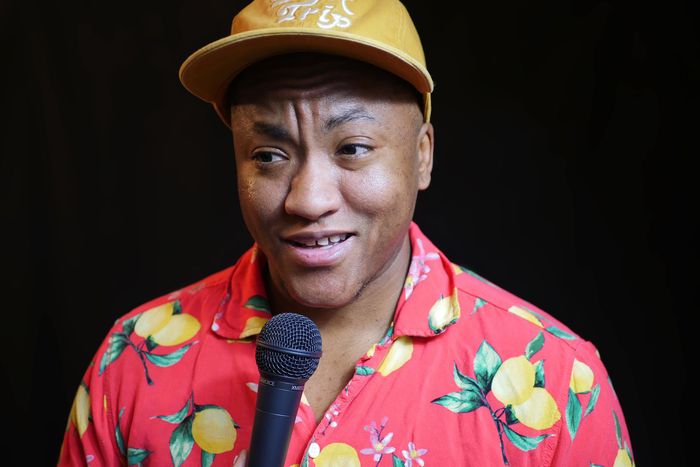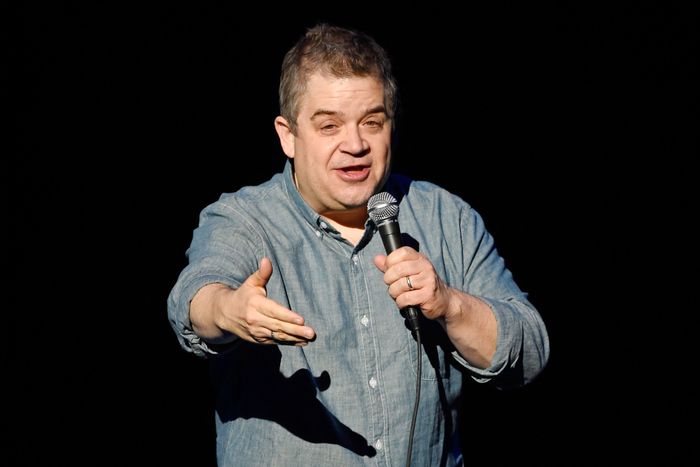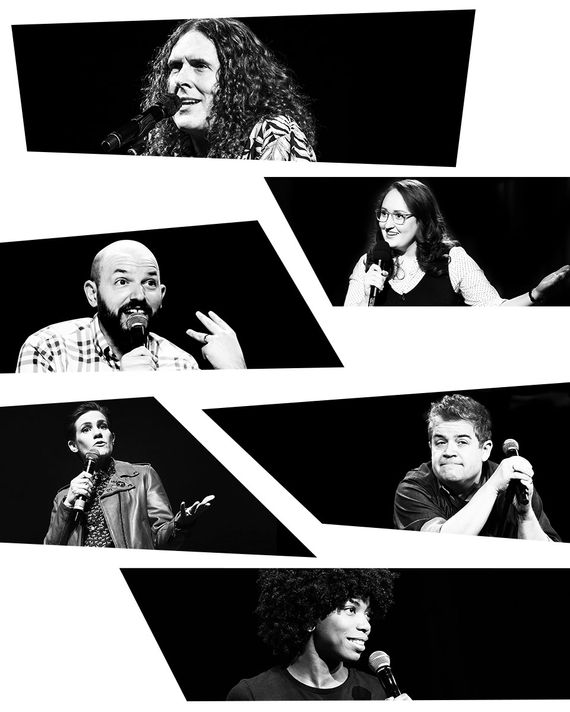
To err is human; to forgive, divine is a proverb that seems to have been rejected by a large sector of the comedy community.
Perhaps it’s a generational thing, but there’s this school of thought that pervades certain comedic circles where jokes are just that and nothing more, so if you’re offended as an audience member, then you are too sensitive or don’t have the mental bandwidth to understand such brilliant joke architecture. Apologies, accountability, and assuaging feelings are for suckers.
Of course, not all comics hold this belief. Many performers are committed to making comedy a less hostile and more inclusive environment for not just marginalized people onstage, but also the ones in the crowd, too. At the very least, not as many comics are allergic to criticism or being considerate as you might think.
As the discourse rages on about whether or not political correctness is destroying comedy (spoiler alert: it isn’t), these 13 comedians decided that self-interrogation is ultimately a good thing. They opened up about the material they’ve performed that hasn’t aged particularly well and how owning up to it has helped grow their comedic voices.
“Weird Al” Yankovic
I tend to go for what I consider “family-friendly” humor. A lot of the material I’ve done just the last year in particular is pretty dark and twisted, but there’s no harsh profanity. There’s nothing overtly sexual. It’s the kind of music that families can listen to on car trips and nobody gets too embarrassed. Having said that, listening to some of my old material, there are some words and terms that I’ve used that have dated very poorly that I would not use in present day. But you have to realize that in the time they were written, they weren’t considered as much of a slur. In fact, there are some words that I use that are completely innocuous in North America which are horrible slurs in other parts of the world, which is something I also had to learn. I try my best not to offend.
There are a couple songs in the ’80s where I use the word “midget,” which in the ’80s was not that much of a slur. It was not a kind word, but it was not a slur. These days, I do not say that word. In fact, at one point on this tour, I sang the song that had that word in it and I stopped the whole band and just explained to the audience how language has evolved over time since I originally wrote the song — this whole diatribe about why I used the word then and I wouldn’t use it now. And then we resumed playing and ended the song. Language changes over time.
Some comics make it their thing never to apologize for anything. And as we are seeing today, some politicians are the same. If I feel like I did something that I’m sorry for, of course I’ll apologize. I mean, we all make mistakes and sometimes I did things I shouldn’t have done. And sometimes you have to call yourself out on it.
Paul Scheer
I was performing at the UCB Theater in New York City when it first opened. One of the things that UCB was really good at doing was teaching us to push limits. We were going to be, for lack of a better term, a punk-rock version of a comedy theater. There were shows that were set up there that were almost alienating to the audience. One of these shows was called the Sick and Twisted Sketch Show. Basically, everyone came with their own pieces and you performed the kind of material that you wouldn’t normally do that was a little bit dirty. After six or seven months, it became this competition between performers to see who could out-dirty each other. For context, this was a show where I remember someone wearing a Darth Vader mask and had a dildo and started fucking someone in the ass. I saw another person drinking a jug of milk and one person would punch him in the stomach and he would puke on the stage. It was next-level bad choices. You couldn’t even classify it as sketch comedy.
One of these shows was scheduled for the one-year anniversary of 9/11. I was in New York City during 9/11 and incredibly affected by that. That show came and it was almost like, “What can we do that will almost give the finger to 9/11?” That was the energy. I wanted to reclaim it, but what I ended up doing was something in terrible taste. I played a man who was trapped under the rubble and had just gotten out, and it came out that I wasn’t in the World Trade Center, but when I saw it on TV, I ran down there because I was an aspiring stand-up comic looking for TV airtime. I was in a suit that was incredibly tattered. Then I was doing material. Not even 9/11 material — just really terrible material while my suit was still kind of smoking. Every time I would get nervous, I would pat myself down and ash and soot would come off me because I was covered in baby powder.
With these taboo subjects, I used to revel in going the distance. When you’re starting off as a comic, that’s the instinct. If I say something so shocking, then it’s like, “Fuck them for not liking it!” It’s a cheap way to rest the blame on the audience. You see it in a ton of younger comics, then you get to watch their evolution into an adult. It’s something everyone goes through in different parts of their life. We’re all gonna say stupid shit. We’re all gonna do stupid shit. And you should make those mistakes. But you need to be able to own up to them honestly, too. When you get a bit older, you realize you don’t have to shock to be funny. One of the things I think about from my Human Giant days is how we walked the line of doing things that were really pushing boundaries, but also creating things I am still proud of. I’m very happy to have made these mistakes in a black box theater at midnight on a Saturday instead of on Instagram or on Facebook because I don’t want it cemented. I’m glad I was able to fail in the dark.
Sasheer Zamata
Years ago, I had a joke about how many white men I slept with. I can’t remember the setup, but I would kind of strut across the stage in a braggadocious manner and say, “So many white men have moved in and out of this pussy you could call it Williamsburg! So many white men been eating out of this pussy you could call it Hale & Hearty! So many white men been beating up this pussy you could call it Rodney King!” And that last line always got a big reaction, which would be a combination of laughter, gasps, and groans from the audience. And I assumed it got that response because I was performing in front of sensitive white folk whose assholes tighten up whenever anyone talks about race. But then we hit a moment in this country where a lot of videos of police brutality were being posted online, and frequently. This violence wasn’t new — it’s just now we all have cameras in our pockets and social media that can make this issue way more public than it used to be. Seeing all this rampant injustice affected me, and dropping a reference of a horrific moment in history into a joke didn’t seem funny to me anymore. Honestly, regardless of the tense racial climate we were in and are still going through, I should’ve never brought up Rodney King while talking about something so inconsequential as how many white boys I’ve slept with. But I was young in comedy and probably thought saying something shocking would suffice instead of just writing a good button for that joke.
I didn’t tell that joke for very long, but I don’t think it would hold up [today]. The audience would tighten up even more today than they did years ago. I also stopped telling the joke because I drastically decreased how much I talk about sex onstage. I haven’t eliminated sex jokes completely, and I still enjoy hearing other people’s sex jokes. But for me, I just wanted to talk less about my sex life because I didn’t want people to think that’s all I care about.
Most people don’t understand that when you watch a stand-up set, you’re not watching a finished product unless you’re watching them tape their special. It’s a weird art form where in order to get better we have to work out our material in front of an audience, and sometimes that means trying something risky and seeing if it’s worth keeping in the set. We need an audience present to feed off their energy and feel their response, which could result in offending someone with a joke we’re trying. I do think we should give people room to grow and change. I wouldn’t want people to judge my character on things I’ve done and said ten years ago. I know way more about myself and other people now, and it wouldn’t be fair to think that who I was as a young comic — or person — is a representation of who I am today. But if a comic has been perpetually saying hateful things for years, and they’ve shown evidence that’s what they believe, and they’re not willing to be open-minded and learn from their mistakes, then cancel them. Bye, bye!
Joel Kim Booster
Unfortunately I’m still a young enough comic that I’m deeply in love with almost everything that has ever come out of my mouth, and I maybe haven’t had enough distance from some of the material I wrote six to seven years ago that I might find objectionable in the future. So this might be a little boring, but I have a joke currently in my act where I describe a particularly bad blow job I received from a Trump voter. And originally in the bit, I described it as “He gave head like he had a mouth full of braces.” I tend to do a lot of my writing and developing onstage, and it was the very first way I ever described it and it always got a laugh, so I never cared to really revisit it. It was a riff, not necessarily the punchline, so I just kind of kept going. Sometimes I’m lazy like that. It’s bad.
I did this joke for almost a year. Then I did a show in New York late last year, and I was doing a meet-and-greet after the show. A guy came up — he was so nice and sweet and told me he’d been a fan for however long and then he said, in a very jokey, non-aggressive way, “I didn’t love the joke about the braces though” and opened up his mouth, and sure enough, there was a full set of braces. He wasn’t mad — he made a joke about how great his blow jobs are. But it sort of stuck with me for a moment. I am such a sensitive boy myself, and it really made me think about this throwaway joke I had, and more so than anything else I realized, “That’s barely a joke.” It was very first-thought, no real joke-writing there. It was such a minor moment but it drove me nuts for days. I tried a few different things, and finally, now the joke is, “He gave head like he had a third row of teeth,” which gets a much bigger and consistent laugh now, and it’s just a much more evocative, comedic image than someone with adult braces.
As a human being, I find accountability to other people extremely important — especially to marginalized groups and those that are facing struggles that I’m maybe not. Like I said, I’m a very sensitive baby boy. But my only sense of accountability as a comic is an artistic one: Am I being honest? Am I making people laugh? Is this new or interesting? My sense of humanity and empathy generally tends to filter out bullshit before my artistic brain even starts up. So the thing about the man with the braces — he seemed fine. I was not the first or the last person to make a joke about adult braces in front of him, and he seemed like he would survive the small trauma of it. But I weighed it in my brain and I just couldn’t reconcile the balance. It wasn’t that funny, so why make someone feel bad even a little bit if I could write a better, funnier bit? Sometimes I don’t think we’re really willing to do that math. Is this joke worth being an asshole? Sometimes it is, and in this case for me, it wasn’t.
Cameron Esposito
I don’t really look at it like regret or shame. More like evolution. As I’ve aged as a human and a performer, I’ve gotten more information and I’ve adjusted my material and performance to reflect my current knowledge.
For instance: I used to talk about women getting periods. I had this bit I did about how our body smashes our bodies out of our bodies. I also have a lot of trans and nonbinary humans in my life and in my audience, and they told me I might want to make it more inclusive. Now I use phrases like “people with vaginas” or “cultured female” and sometimes “men” and “women,” but I explain that I know those are reductive, binary terms. It is not complicated or annoying to include that extra context.
I see this three ways: Care about your audience, care about your art, or care about your bottom line. The first part is for folks whose goal is to leave the world slightly better than you found it. If that’s you, challenge yourself to listen to audience feedback and do less harm. For folks who care only about stand-up, love the art enough to expect it will demand evolution from you as a comic. Use current terminology or concepts because you care enough about stand-up to push the form forward. Finally, if you’re a cynic, remember this: 21 to 35-year-olds are your most likely live audience. Those are the folks who buy tickets. You want to keep selling tickets to that generation as you age through and out of it, so don’t piss off the youth. And the youth wants you to give a shit about racism, LGBTQ rights, feminism, etc. If you don’t give a shit about other people, evolve for your bank account.
Emily Heller
I used to have a bit in my act about how there’s a voice people associate with gay men, but there’s no “lesbian accent.” I pitched that we introduce one, and that it should be a really bad, fake French accent. That joke might actually hold up, I don’t know, but the introduction I used to do to get into it was pretty shitty. I would say, “I’m not gay. I know I have to say that in order for people to know it.” It could be argued that there’s nothing necessarily homophobic about what I’m saying there — just that I get mistaken for a lesbian a lot. But it would be insane for me to claim that the laugh I was getting wasn’t at the expense of gay women.
I regret telling it for so long. I knew why people were laughing and I’m responsible for that. I wish I could say I stopped telling it because I wised up, but really, I think I did it on TV and then I considered it burned material. It wasn’t until recently that I started to wonder, “Yeeeeesh, what was I thinking?” Not to be all “But I have a lot of gay friends!” but when I started doing stand-up, I was fresh out of UC Santa Cruz, and I really didn’t have a lot of straight female friends. I’m straight, but my relationship to femininity felt like something I needed to explain to audiences. “Looking like a lesbian” was the laziest possible take on a subject I should have had more respect for. I was also writing a lot with Janine Brito, who is a brilliant lesbian comic I met in San Francisco. As a result I wrote way more about homosexuality than I probably should have, in part because I was hanging out with her so much, trying to keep up with her comedically.
Accountability is hard and not fun. But I can tell you a story I think about a lot. When I was in college, I saw a play called Carry the Tiger to the Mountain. It’s about the murder of Vincent Chin, a hate-crime in Detroit before hate-crime laws even existed in the U.S. He was a Chinese-American man who was beaten to death by Chrysler employees who were pissed off about the effect Japanese cars were having on the U.S. auto industry. Around this same time, I started getting into comedy. I had always been a fan, but I was starting to perform and go to more shows. I invited a friend to come with me to an improv show on campus. My friend was Asian-American — it was the same friend who had taken me to see that play. Because it was college improv, it was obviously fucking terrible, but the worst part was when one of the white kids onstage launched into a Family Guy–esque impression of an Asian person, which is to say it was extremely racist. I don’t remember what it was exactly, and I don’t remember if we stayed until the end or if we left right then. The next thing I remember is my friend sobbing in the parking lot. Frustrated, furious, sad. It was horrible.
I don’t remember if we talked about it in that moment or not, but I know Vincent Chin was fresh in both of our minds. Those two shows were connected. The effect they had was connected. Maybe that’s why I’ve never thought about “political correctness” in the way some comics do. To me, it’s never been some hypothetical hand-wringing, or some competitive exercise in self-righteousness. From the moment I started doing comedy, it’s been that image: my friend, crying in a parking lot, wondering if America will ever be safe for people who look like them, or if instead, we will continue to hate them so much that it will be normal for strangers to beat them to death. Wouldn’t you want to avoid making people feel like that? Especially at a comedy show?
Kyle Kinane
I would do some purposely over-the-top jokes from time to time just to see if the audience was listening — clearly ridiculous jokes that I assumed would be seen as such, but since times have changed I guess now they’re considered regrettable. I used to get onstage and say “Rape? I can barely keep it up for a woman who’s into me.” Kind of like a low self-esteem Andrew Dice Clay routine. The truth of the matter was I was a constant limp dick for a long time because the only time I’d lose my inhibitions enough to go home with a woman was when I was wasted, so I was sexually worthless in the moment. I thought the joke was about maintaining a hard-on while under pressure, and not about how morally reprehensible the act of rape is. Like, someone is too lazy and psychologically frail to commit to raping someone.
It worked because people used to laugh at rape jokes. It doesn’t work now because it’s a rape joke. I was only doing it to shock and get attention. It’s not my view, and I’m not trying to rattle people with comedy. I’m not trying to pull a logical switcheroo on an audience: “Well, um, you see here, your offense is incorrect because technically the joke is about this instead of what I led you to believe.” I don’t believe in that whole “You might not think I’m funny, but it’s only because my comedy is intellectually superior” bullshit.
Comedians who grow with the times and allow themselves a change of heart on matters are more human to me, more connected to the zeitgeist, and therefore more interesting to watch. I want to see someone grow as a human and explore who they think they are with their comedy. The guys who complain about not being able to do rape jokes anymore seem like dudes who forgot to keep growing. They got comfortable with how things used to be. Comfort is a synonym for dry rot. And I’m sure the same will happen to some members of the PC scene as well. Eventually the righteous platitudes some folks are passing off as comedy will come around on them just the same. You still gotta have jokes. I’ll listen to you talk about all the social issues, but you still have to write some fucking punchlines. When it comes down to it, I’d rather watch a scumbag tell good jokes than watch a saint drag their ass all over the stage.
Anna Drezen
Something that has been really bugging me lately, that I used to do constantly, is make generalized potshots at my own appearance onstage. Not specific things, like “I look like if Brendan Fraser were a new mom,” which is both specific and true. But like, “I’m so gross and huge and ugly, and here’s some jokes predicated on those generalities.” This was when I was 24 and a lot fitter and closer to the thing we’re all supposed to want to look like, but I also was very depressed and drinking a lot and terrified of never finding success or love or whatever. So instead of cultivating self-worth, I would get onstage multiple times a night and tell people about how gross and unfuckable I was — basically daring them to laugh. Like, “Either you don’t laugh and that means I’m not funny, or you laugh and that means I’m not pretty.” It truly had nothing to do with punchlines and everything to do with my very sick ego. I knew people weren’t laughing, which is kind of exactly what I wanted: I wanted the right to scream at myself in public, and then also get to feel like a bunch of people just told me how pretty I actually was. It was a full-on hostage situation.
Looking back now, I want to throttle myself. I wish I could go back in time and heckle myself with “Your body is great just as it is, but it’s also just going to keep getting worse until you die! Shut up!” It’s boring and toxic to try and tell women comics what they should or shouldn’t talk about; this isn’t to say women can’t dunk on their own appearance onstage. I’m talking about young women comics who aren’t yet out of college talking about how much weight they’ve gained recently — like yeah, it’s called puberty — or how ugly they are, and how “obviously no one would want to fuck me because duh, look at me,” and I see them getting a small thrill out of bullying themselves in public. People don’t mind laughing at a comic making fun of themselves when they know that your self-hatred is reasonable, limited, and based in reality, so they know it won’t metastasize into a full-blown crying jag.
I do make fun of my appearance onstage now, but it’s not from a place of festering self-hatred, so I don’t think Future Me will be heckling me anytime soon. I also keep it to specific ideas about specific aspects of myself that have actual jokes at the end of them. Not just “I hate my dumb bad body, okay?” Which honestly is something I would probably tweet.
Demi Adejuyigbe
Because so much of my comedy has been made for the internet, I’ve gotten good at not making anything that is truly offensive — or, at least, at being able to realize it quickly. But the only piece of comedy I’ve made that I can recall feeling icky about is the Will Smith Moonlight credits rap. Every year for the Oscars — for the last four years, at least — I write a fake song based on one or more of the nominated films, and in 2017 I made one for Moonlight framed as a rap that Will Smith wrote and performed over the credits. The turn at the end of the song was Will Smith repeatedly rapping about how much he supports the gay community, despite not being gay himself.
No one has ever really called me out on it, but even as I published it I told myself that someone eventually would, and they’d be right. I even started trying to figure out how I’d defend myself whenever somebody did eventually come after me for it, which seems like a lot more of a mental strain than just having made a better joke in the first place. It’s not even that good of a song! I could’ve just not made it.
Jake Flores
I recorded an album when I was, like, 27. I was gearing up to move to New York and “make it.” I’ve since become very, very rich and famous, and now when I think about the jokes I chose to crystallize on that album, the chunk of material that glares the most consists of some lines about how some woman I had dated was “crazy.” I mean, she, as an individual, was completely corncobs. That part’s not untrue, but I think the premise was hacky and sort of pandering to popular tropes at the time: manic pixie dream girls, emo, pop-punk, “bitches be crazy,” that sort of thing. I mention pop-punk and emo because at the time it was considered “interesting” and “deep” and not “childish” and “mentally ill” to be a guy who antagonizes women. A lot of pop culture was very rewarding of that stuff. I think people are moving past it, but I may just be getting older and hanging around people that are also growing. I have no idea what kind of insane shit is cool to 22-year-olds right now.
A lot of times when you’re writing you’re trying to get your authentic point of view into the material, but you’re measuring it against what people react to, and it’s easy to get tempted by the gratification the audience gives you when you say “Women are insane!” You start lying to yourself and saying “I meant to do this the whole time.” I try to fight that. Stand-up is a pretty dorky art form to begin with, and if you start becoming what you think the audience wants, you can end up as a very lame person. You have to fight that impulse. I stopped doing it because it worked. It was bumming me out that people liked it because I think they liked it for the wrong reason. I think about that a lot in regards to Chappelle leaving Comedy Central. It’s a gross feeling realizing that a faceless mob is laughing out of sincere hate and not irony. I also don’t think the joke would work if I tried to do it today. After you understand why something sucks, it’s hard to sell it. Stand-up is dark magic like that — you’re looking in mirrors and messing with your ego and putting pieces of your soul into these things without even realizing it.
Should we hold comedians accountable for their jokes? This is kind of a hot take: No. People have gone completely bananas with what they consider the role of art and culture to be. I think this is because of Trump. Everyone feels powerless, and so they’re doubling down on this weird idea that culture affects society and not the other way around. It’s resulting in lame jokes. A joke’s supposed to give you a gut laugh — it’s not supposed to make you clap and think, “Good for that person.” Or at least it’s not only supposed to do that. And you have to break a lot of eggs to figure out how to get those gut laughs, so you’re probably going to say some weird shit the same way if you’re learning to play the oboe you’re going to make a bunch of messed up herky-jerky whistling toot noises. I don’t like my old jokes about women — not because they were offensive, but because of the subtext. What was actually being said was kind of bad. Irony is different. I could write a really offensive ironic joke about the same topic and I’d feel great about it, but that complexity is being lost, and that complexity is what helps people understand a thing that evoked a feeling in them. I had to grow to get where I am now. It wouldn’t have happened if I was just, like, fired from art.
Sabrina Jalees
I started stand-up when I was 16 and a lot of my early stuff was about race. “I’m half Pakistani, half Swiss … I’m Piss!” It’s wild to think how much both comedy and me have evolved since then. But back then, Dat Phan was the champion of Last Comic Standing and I was the champion of being a closeted girl with braces and dangly earrings. I had this embarrassing joke: “I’m like a coconut: Brown on the outside, white on the inside!” It’s sad and weird and self-hating and truly not the way I feel at all. If anything, I’m like a lychee: weird, fun, exotic, delicious, expensive, and if you peel back the skin, very fleshy.
The bit did work — I think it lived in a time where acknowledging your race and making light of it was this new fun thing. I guess that’s kind of under the hood of the joke: I’m brown! I know it! But guess what, I’m white too! And that’s the real me. I will say, my Swiss mother brought the joke up not too long ago, laughed, and said, “It’s still one of my favorites. So clever.” So, the joke still has a demo.
The deeper I’ve gotten into stand-up, the more I’ve realized the most important thing, for me, is building material from a real feeling or thought. If I’m onstage talking about something that I don’t actually care about, it doesn’t matter how clever the joke is — it’ll never be great. When you’re starting out in stand-up, though, your first focus tends to be “How do I get to the laugh?” Playing purely for laughs can give you blinders that can leave you a lot like a coconut: brown on the outside, and like ugh-what-was-I-thinking on the inside.
Kai Choyce
I used to do this bit about how some labia look like poorly made roast beef sandwiches. It was pretty gross, and it always got big laughs, but I stopped doing it when I realized it was pretty body-shame-y and I didn’t want to be the reason why even one woman out there felt terrible about her body. Thinking back, I’m surprised no one ever called me out on it, because the tone of it was so out of character with who I was and what I truly believed, both then and now.
I remember seeing this black-and-white art piece that was a collage of photographs of pussies of all sizes and shapes, and I just had an “a-ha” moment, realizing that I’d been inadvertently shaming women for their God/universe/whatever-you-believe-given diversity, for nothing more than laughs. I realized that there was no way that I wasn’t making some of the women in the room uncomfortable with that bit every time I told it, and if there’s one thing women don’t need, it’s another reason to feel unwelcome in comedy spaces. Plus, if I’m gonna make someone uncomfortable with my jokes, it should be for something that should change because it marginalizes other people, not the simple act of existing.
I think many comics are afraid of a slippery slope that once you can’t talk about one thing you won’t be able to talk about anything. I don’t believe that certain topics should be off-limits in comedy, but I do believe that if you’re going to stand behind a harmful point of view or push the envelope of what’s considered socially acceptable, you should also be brave enough to take the criticism that goes along with that. It’s not brave to be politically incorrect if you cry whenever people call you out or push back against the ideals you’re espousing. It’s fearful and it’s lazy. The fact is, no one is entitled to a paying audience, a TV show, a writers room gig. No one is entitled to their dream job. If you’re a really great comedian, your audience will follow you no matter what. You can book your own tours if you’re too “edgy” for comedy clubs and traditional rooms.
Patton Oswalt
When you’re young, you’re insecure. You’re not comfortable enough in making fun of yourself yet. You’re already terrified of being onstage. There was a lot in my early bits where I was targeting someone else when things weren’t going well. My targets were off. I wasn’t even doing specific bits. The stuff I really regret is that I was doing very hack jokes about midgets or someone who’s mentally handicapped just to get a rise out of the audience. Especially those ones where I love cursing. I loved the word “fuck,” but a lot of times, I was using it just as filler rather than meat. It’s more of the overall insecurity.
I did a bit — and I guess I was trying, in my young mind, to just offend — where I used the words “gay” and “retarded.” “Are there gay retarded people? If so, where’s their march? They should be allowed to have a march!” When I look back at the bit, it’s just lazy. I’m trying to say the word “retard” and get that easy laugh. I’m rarely embarrassed by anything offensive I do, but I’m very embarrassed when I’ve done something lazy.
It would be good to demystify a lot of what comedy is. Like, we aren’t these infallible joke machines. We’re humans trying to wrestle with the world. But there is all kinds of shit that I’m not a fan of. This whole “I don’t apologize for shit” or “real men don’t apologize” thing — that comes out of such obvious insecurity. It’s way more “alpha” to listen to your critics and say, “Shit, you’re right. I fucked that one up.” Also, by the way, this wisdom — or whatever level of wisdom I have — comes from years of me wrongly fighting against that and thinking I was some First Amendment Warrior, when what I was really doing was thinking I had gotten very comfortable when I wasn’t. Nothing ever stays the same, especially if you’re in the creative business. You either accept that and evolve, or you die. That was something I’m glad I came out the other end of. I am willing to change and grow. Also, the core of what makes a comedian good is you look at stuff in the world that everyone accepts and you tear it down a little bit to find out what’s funny in it. If I refuse to do that with my own work and I only do that with the outside world, that’s a pretty weak stance to have in life.
If you want see what a long and active career looks like, look at John Waters. He was all shock value coming up. Then he got to an age where he realized, “Oh, my stuff’s not shocking anymore. I’m gonna be America’s beloved uncle now.” Stuff that he used to do that got his films X-ratings and only shown at midnight are now throwaway jokes in PG-13 films. Literally. Pink Flamingos ended with Divine eating dog shit. Then there’s a shit-drinking joke in the first 20 minutes of Austin Powers. It’s just unbecoming to be the 50-year-old trying to shock people like they’re 19. Get out of the way and let the younger generation come up and shock people for a while.


